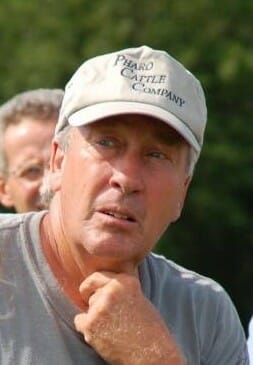Stewardship and the Practical Farmer
Practical Farmers’ focus on profitability and efficiency is strong, but members repeatedly give us highest marks for helping them become better environmental stewards.
This summer’s (soon-to-be-announced) field days will continue that strong focus on stewardship: For example, Dick and Diana Sloan host a field day June 19th covering their three-crop rotation and native prairie plantings. A field day June 22nd at Blue Gate Farm will cover on-farm pollinator research and prairie plants best suited to help pollinators. Fred Abels will share his no-till strategies, why he reserves land for pasture, and his cover crops at a field day June 26th. And stewardship farmers featured throughout the busy field day season!
Stewardship can be anything you do to leave your farm in better shape for future generations, such as improvements that affect energy use, soil, water, and biodiversity or field conservation. Here members speak on how Practical Farmers has helped farm stewardship, taken from our most recent member survey:
“Through PFI I am now aware of cover crops and the biological activity in the soil.”
I’ve learned more from the cover crop discussion list, reading the research articles, the farminars”
“Your emphasis on cover crops has helped”
“Earlier PFI work on nitrogen testing was key”
“Your focus on energy systems and energy conservation”
“Good information at conferences and workshops on energy efficiency and alternative energy production”
“I’ve learned from Sarah Carlson and her comments”
“Growing cover crops improves soil quality; adding rye and a legume as a third crop cuts costs and improves efficiency”
“I’ve learned more about forages and cover crops, which reduce erosion and build soil health”
I became familiar with rotational grazing through the annual conference and field days. This led us to work with NRCS through EQIP and Conservation Stewardship Program.”
“I have started using ‘mob grazing.’ It will help me improve the land without using chemical fertilizer.”
“I wouldn’t be farming without PFI. The organization has provided support to our very diversified operation that is both certified organic and conventional.”
“PFI helped us look into energy efficiency when we were building.”
“Participating in recording energy data increased my awareness and led to improvements that reduced energy use.”
“On-farm research has been the number one way we’ve increased stewardship”
“I am working to convince my father and uncles to plant more cover crops on acres we farm collectively.”
“I reduced tillage and used cover crops for nutrient sequestration to reduce fertilizer inputs”
“PFI has helped us take a holistic look at crop production and protecting the environment”

